As I look over the bloated, bloody body tied to an altar before me, I get a rush of excitement. Not because I’m some sort of sadist. No, this pleasure stems from elsewhere: it’s the thrill of the hunt.
I search the grisly scene for clues, noting the victim’s ligature marks, gaping chest wound, and the nearby beers, before adding my evidence piece-by-piece to the Case Board in FBI Agent Saga Anderson’s Mind Place. There are important questions to answer: Who is the killer? What was their murder method? I place the evidence and watch as threads of red strings connect the dots. I’d say I’m one step closer to the answers I need, but this is only the tip of a very large iceberg.
The waters of Alan Wake 2 run deep, and this HBO-style detective drama is only half the story. As you might expect, things aren’t quite as they seem, and this dead body is merely a cog in Remedy Entertainment’s fantastically weird machine. It’s just a shame the performance needs oiling.
Chapter one: The Saga continues

Alan Wake 2 is divided into two riveting single-player stories. Saga’s story is more of a detective thriller. As she tracks down the violent Cult of the Tree, she gathers clues and evidence that can be pinned to the Case Board in her Mind Place, hinting at what to do next and the overarching narrative. Saga’s story may appear simple on the surface, but this is an Alan Wake game, after all, full of twists and surprises.
The Mind Place serves as a hub for Saga, allowing you to upgrade weapons, add clues to the Case Board, and even rewatch and listen to TV commercials and radio stations she has come across. It’s a handy place to come back to when you’re feeling lost. I highly recommend watching all the live-action commercials when you have time, they’re laugh-out-loud funny and a refreshing contrast to the dark narrative.
And things do get dark, particularly in Alan’s reality. The troubled writer finds himself exploring a Dark Place version of New York City as he attempts to unearth what supernatural forces are at work while also searching for his wife, Alice. I’ll leave you to discover the rest for yourself, as it’s best left entirely unspoiled.
Once you reach the point where you can switch characters, these two narratives can be played in any order you see fit, and almost feel like different games.
What really elevates these two stories is the seamless blend of CGI and live action in both gameplay and cutscenes. Ilkka Villi takes Alan Wake 2 to new heights in his role as Alan, while Melanie Liburd and Sam Lake give stellar performances as Saga and Agent Casey, respectively, combining a standout cast with character animations that look and feel alive.
This mix of mediums adds to the surreal feel of Alan Wake 2 and results in some captivating cutscenes, hilariously bizarre scenarios, and downright terrifying moments.
Horror is at the heart of Alan Wake 2, make no mistake. The jump scares are no joke, and in both stories, I found my heart pumping out of my chest while I scrambled to complete a section and return to safety.
Chapter two: Not entirely Taken
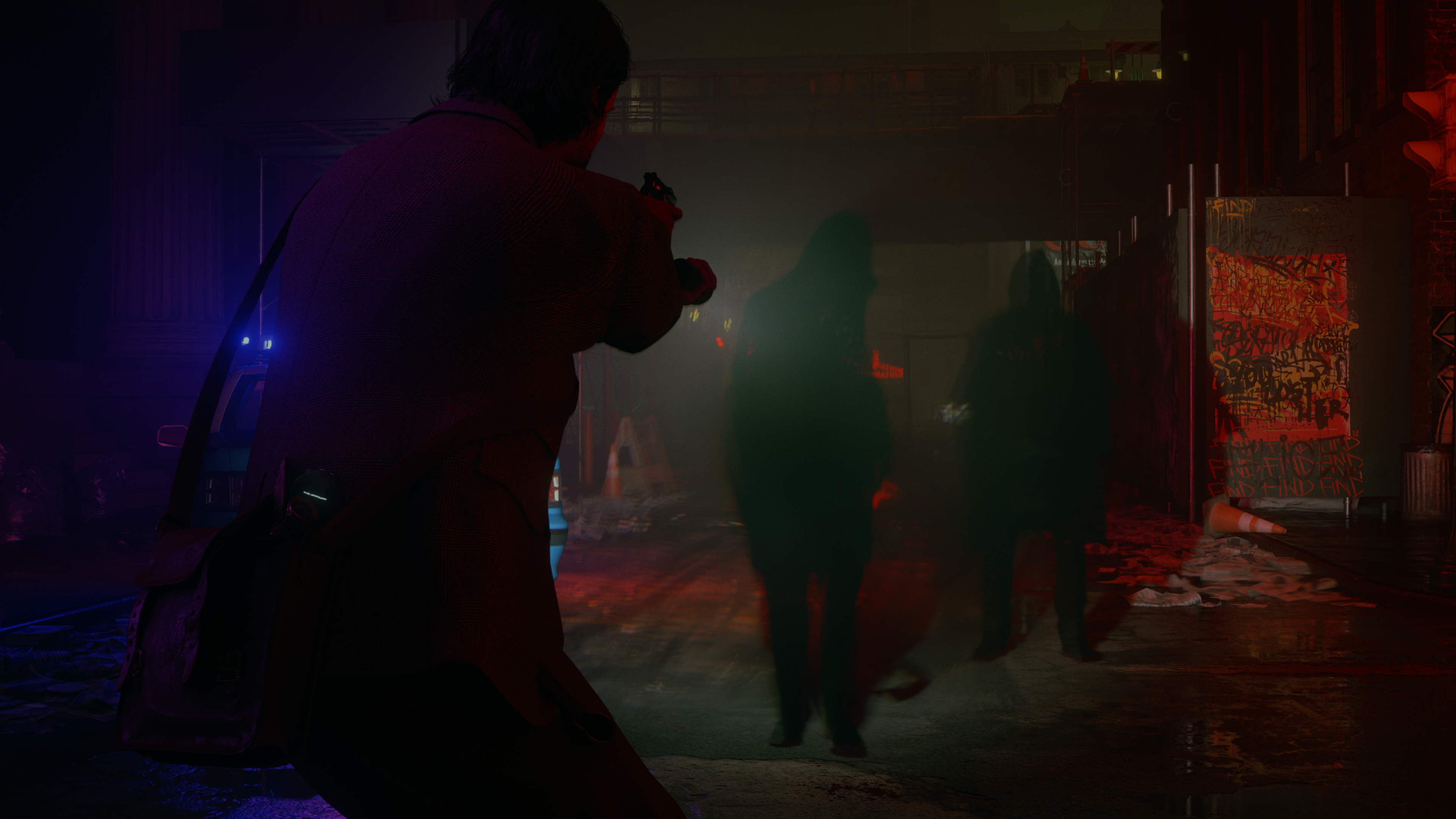
In Alan Wake, the Taken, shadowy enemies possessed by the Dark Presence, were arguably the scariest part of the game, but in Alan Wake 2, they’re mostly just a pain.
Often, I found myself trying to go from A to B, and some wayward Taken was in the way, slowing down the pace of the hunt. I dreaded running into one because it meant I couldn’t get to the next part of the game fast enough. I’ve never been a huge fan of the shine light then shoot combat in Alan Wake, and in the sequel, this becomes more frustrating because it takes so long to take the damn Taken down.
Unless you’re a great shot (and I’m not), you can unload a multitude of bullets into a Taken before it finally drops, a surefire way to use up all your scarce ammo and light pretty quickly. Resources are less abundant than in the previous game, especially as you progress, making clever resource management critical. If you can run past a Taken, I advise doing so.
Chapter three: Diabolus ex Machina
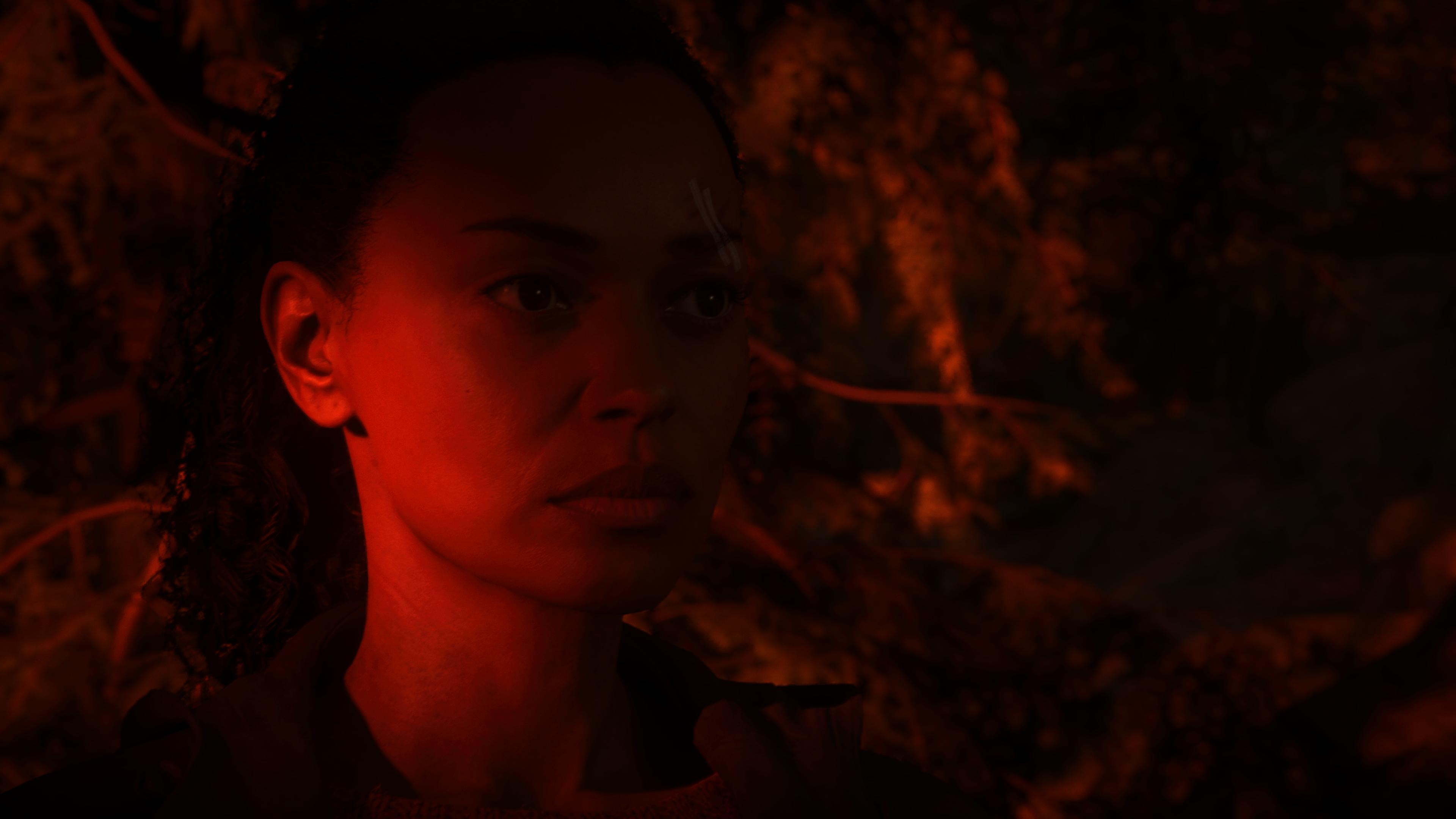
Perhaps the biggest overall issue I experienced in Alan Wake 2 was its performance. I played on Quality Mode on PS5 initially but, in the later parts of the game, struggled with major fps drops in Saga’s sections. In an especially enjoyable level, I found the screen stuttering so much that I felt nauseous, making the fight almost unplayable. Switching to Performance Mode didn’t help, and saw Saga zooming about like she’d had too much Oh Deer coffee.
On several occasions, instead of showing the usual wording on map markers like screwdriver locked doors, I got what appeared to be the developer code names like “Door_Item_Bolt_Cutters”. Other issues included getting stuck on the Case Board, having to reload, and the camera inexplicably showing the inside of Saga’s head, so all I saw were eyeballs and teeth—not the kind of horror I was looking for.
These bugs were annoying but not game-breaking, I thought to myself. Then, it happened. As Alan, I was unable to line up one of the Echoes required to progress, and my PS5 playtime was over. I was moved over to PC by the developer as, at the time of playing, there was no specific fix, but I continued to experience many of the issues I had on PS5.
Saga fell through the map, the eyeballs and teeth bug happened again, and the fps drops and staggering continued. Remedy has said it’s addressed many of these issues for launch, but I have to review what was in front of me, not what is promised for the future. These issues made a brilliant, original game a major slog.
Chapter four: Through the woods
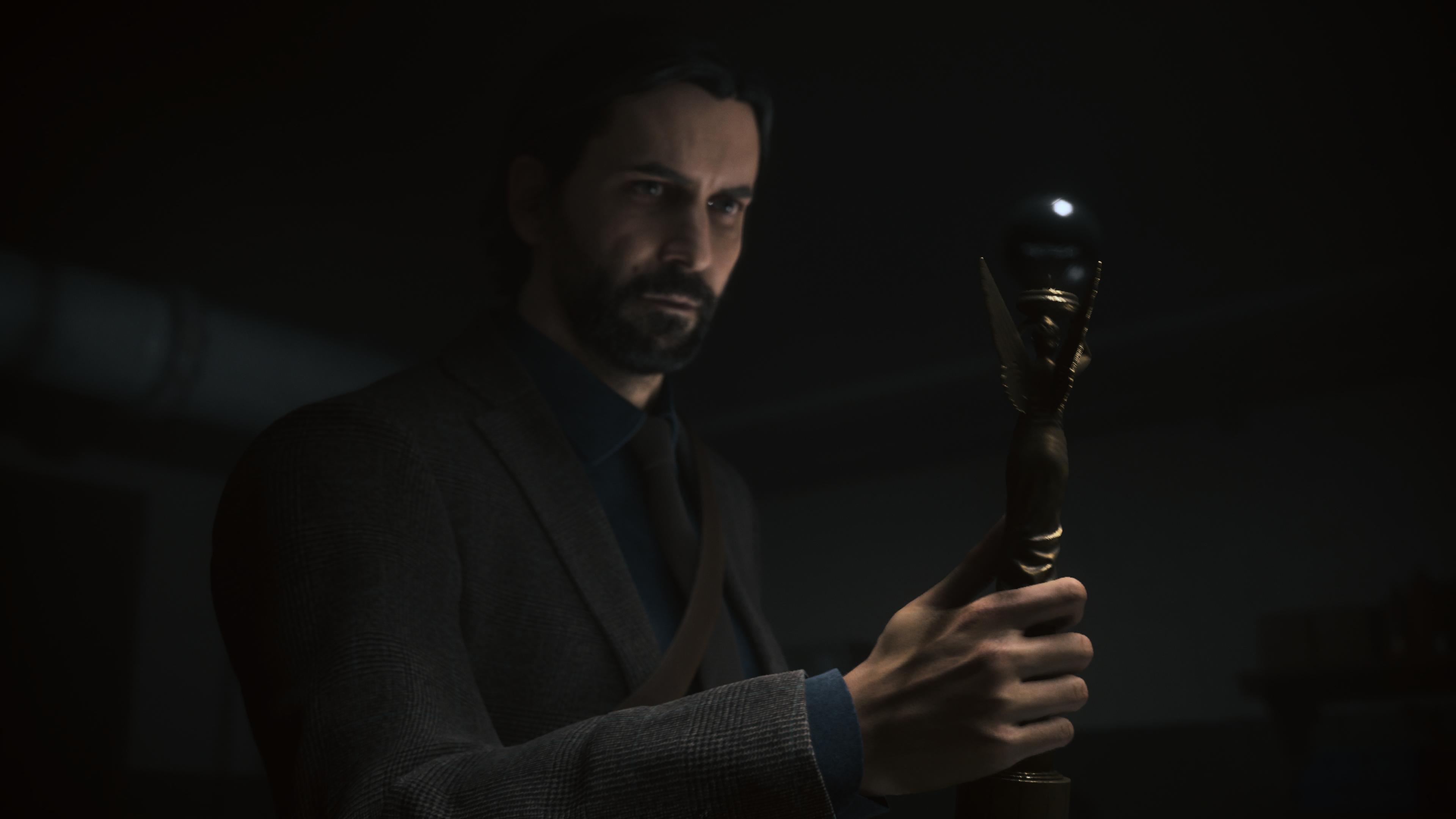
Despite these problems, Alan Wake 2 shines in the smaller details. Environmental storytelling is a key part of this, with readable notes, documents, and other items scattered around that flesh out characters, events, and the story overall.
The environments themselves are beautiful, packed with detail, and begging to be explored. There are plenty of puzzles to solve, Cult Stashes to unlock, and collectible Lunch Boxes to find in Saga’s reality. Alan’s reality, meanwhile, is dripping with references to Remedy titles Control, Quantum Break, and Alan Wake. I happily spent hours looking in every nook and cranny.
Interacting with these environments is particularly important in Alan’s sections. Armed with an Angel Lamp, Alan can pull and redistribute light from and to certain sources, changing the environment to allow progression. Similarly to Saga’s Case Board, he has a Plot Board in his Writer’s Room. By collecting specific scenes and plots, Alan can combine the two, rewriting the story he’s in at certain points to alter the environment. Like with the Angel Lamp, this is often needed to progress, with both devices acting as a means of solving environmental puzzles. It can be tricky to get the hang of initially, but adds an extra, welcome challenge to Alan’s sections.
The end: Quite a trip
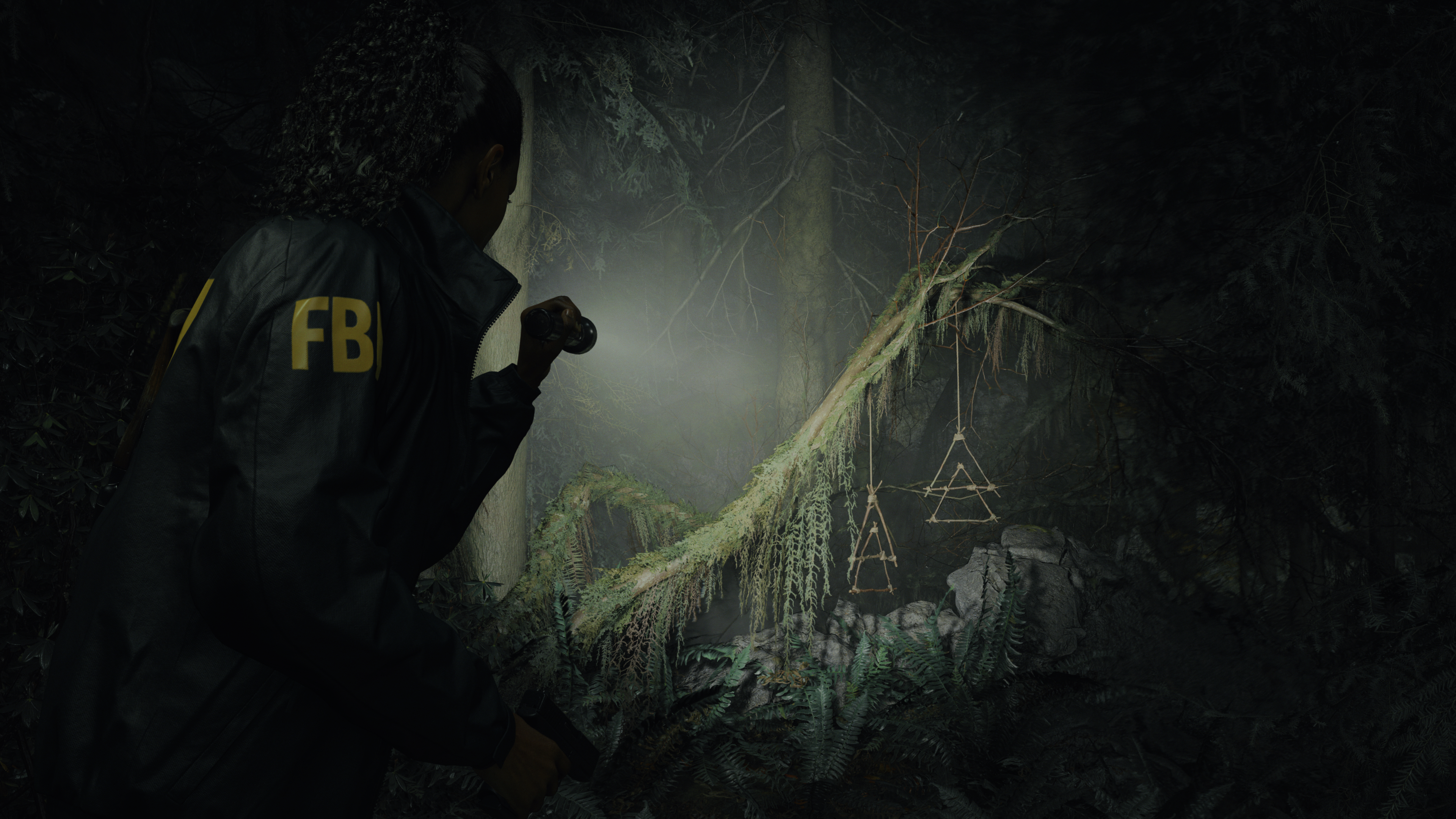
Alan Wake 2’s story was worth the wait, but we should have waited longer because it’s let down by some major performance issues. I’m hoping they’ll be ironed out for launch because they made my two playthroughs a slog.
Remedy Entertainment has come a long way since the release of Alan Wake in 2010, becoming a master of environmental storytelling and the art of combining live action and CGI seamlessly.
This, alongside an impressively detailed world and carefully crafted characters, combines to create a wonderfully weird and trippy detective story that will leave you saying “WTF!?” on more than one occasion. Peeling back the layers of the story is worth it, even if I’ll be scratching my head, working through the mystery for weeks to come, or slamming it against a wall due to yet another bug.
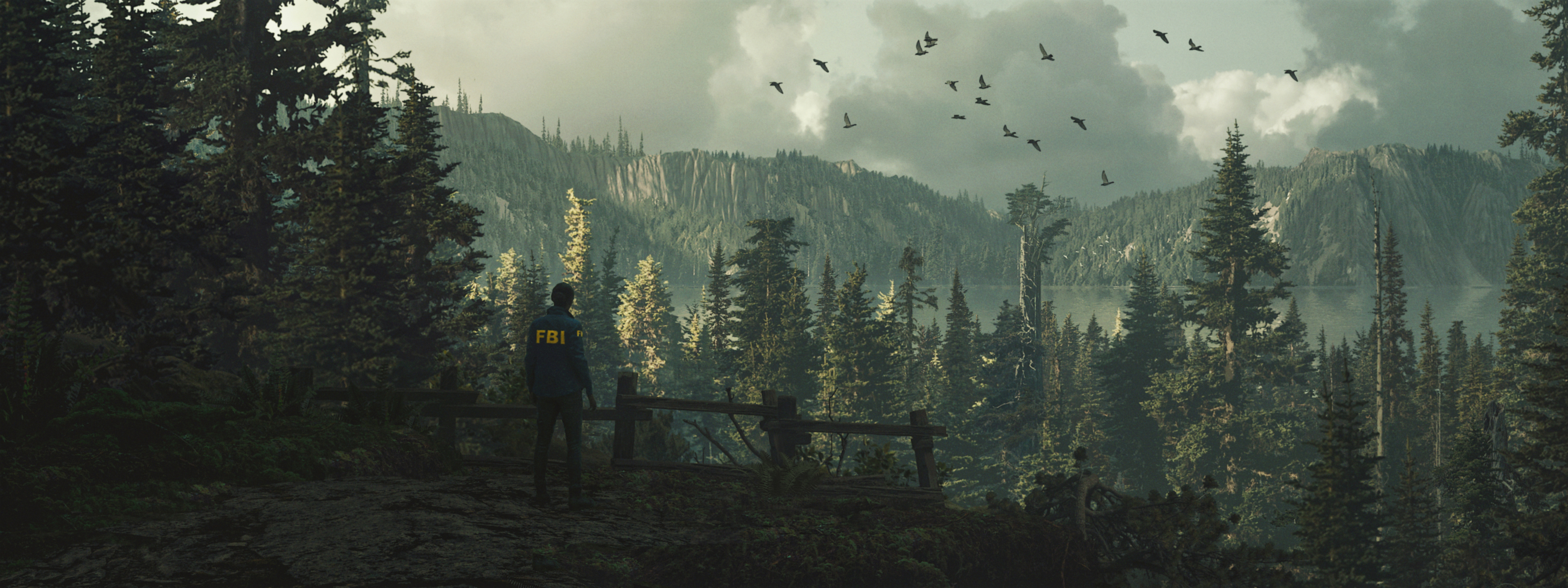
- Switching between Alan and Saga keeps things fresh
- Engaging, smart writing
- Blends live action and gameplay brilliantly
- Manages to be seriously scary and laugh-out-loud funny
- Character animations are incredibly realistic
- Serious performance issues
- Combat can feel clunky


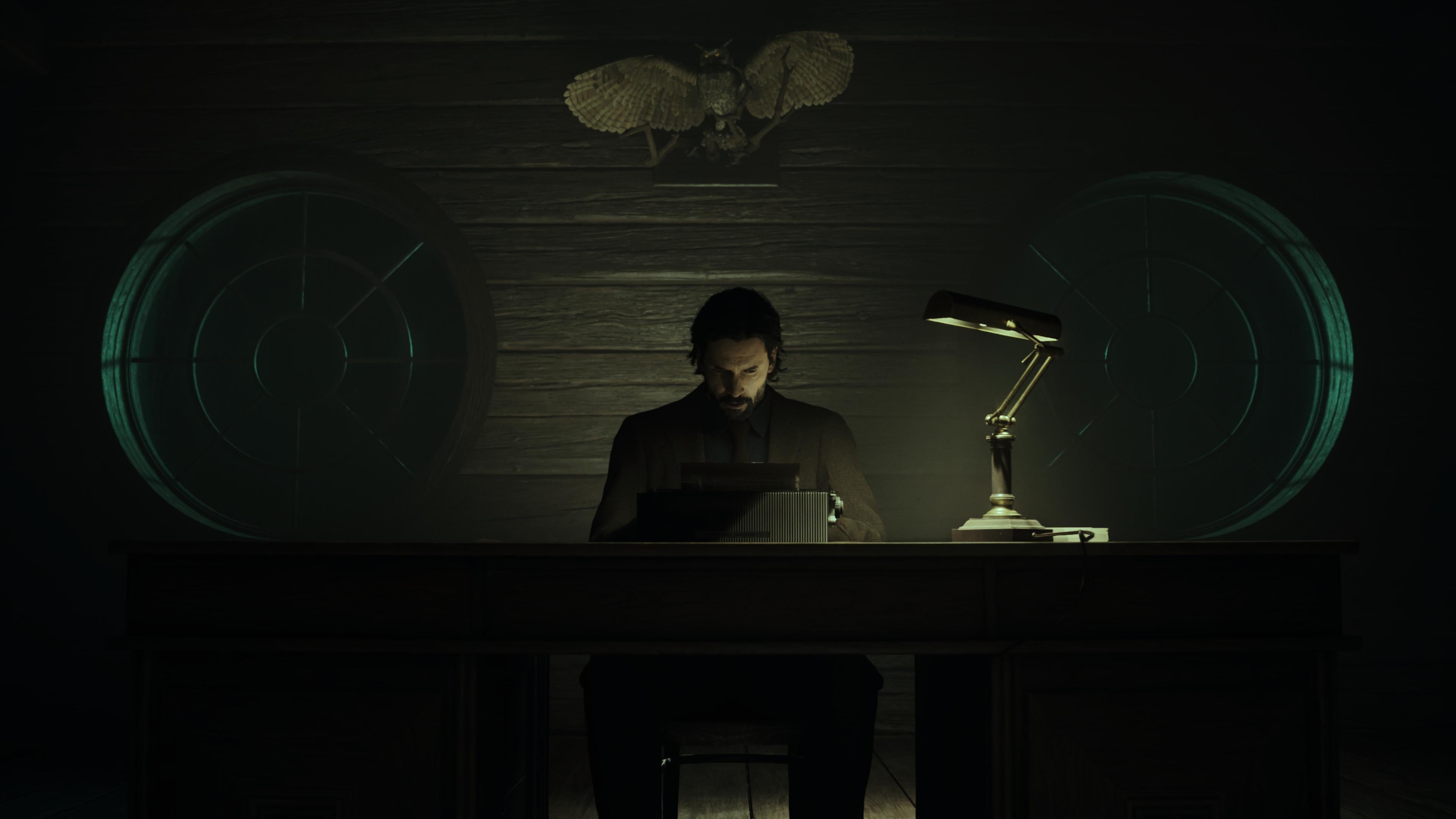
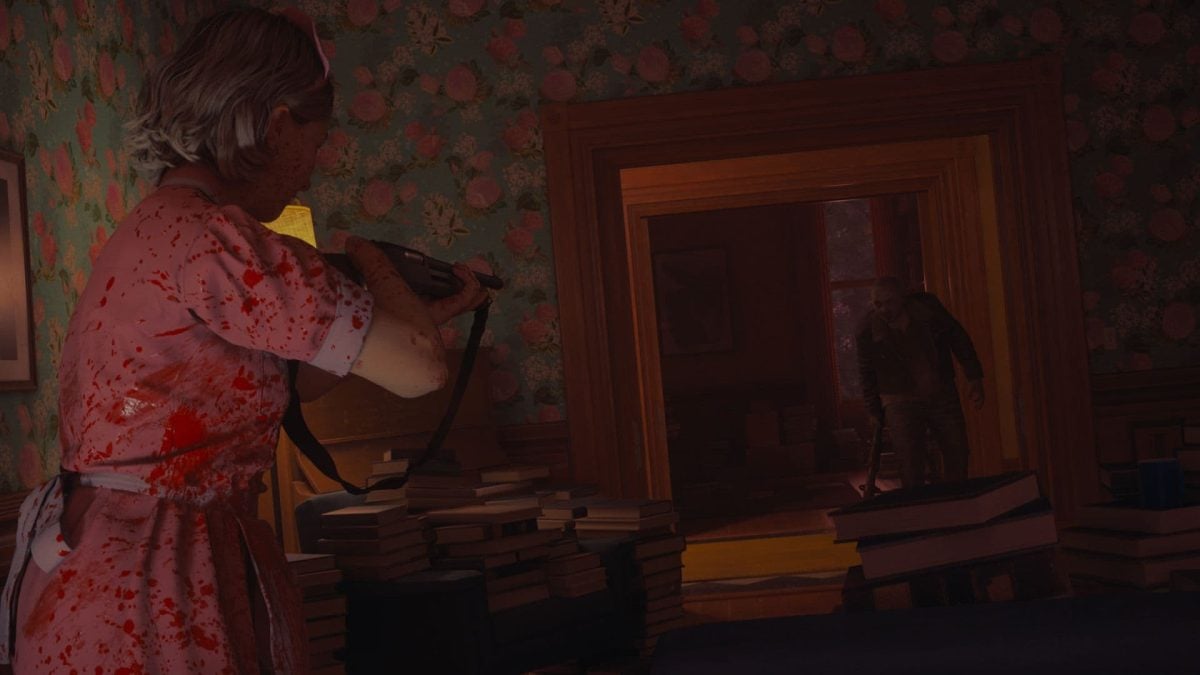


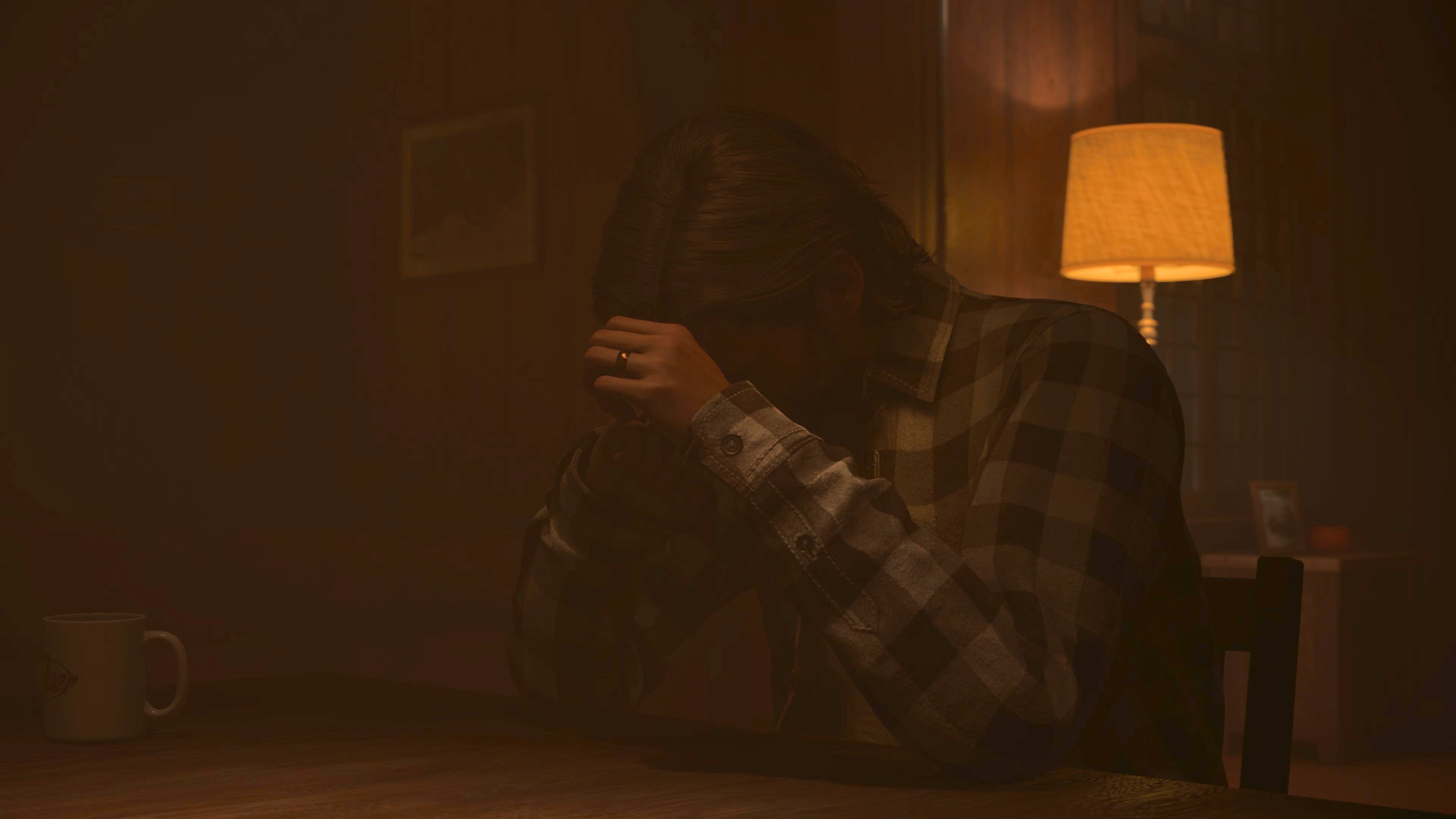
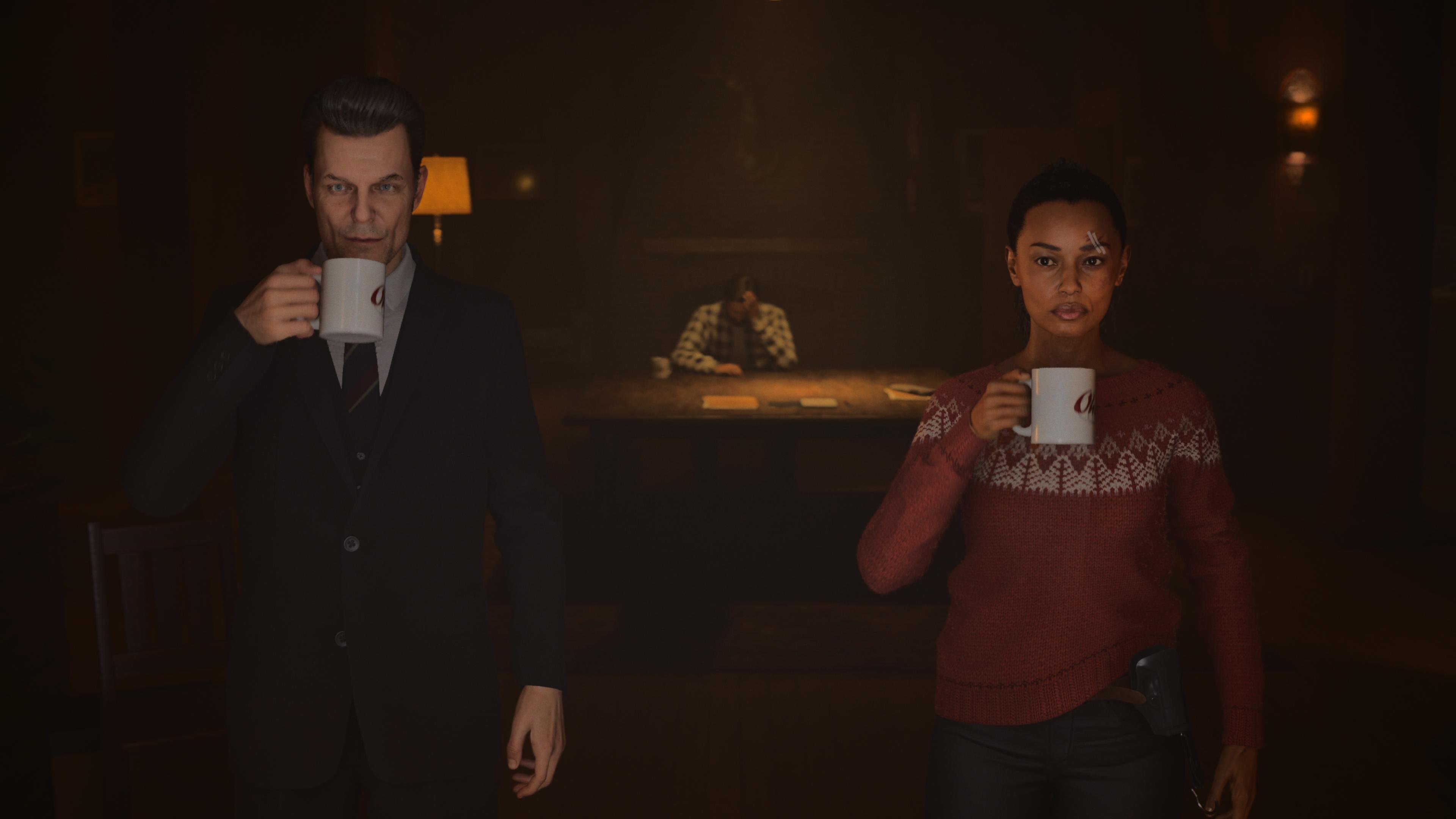

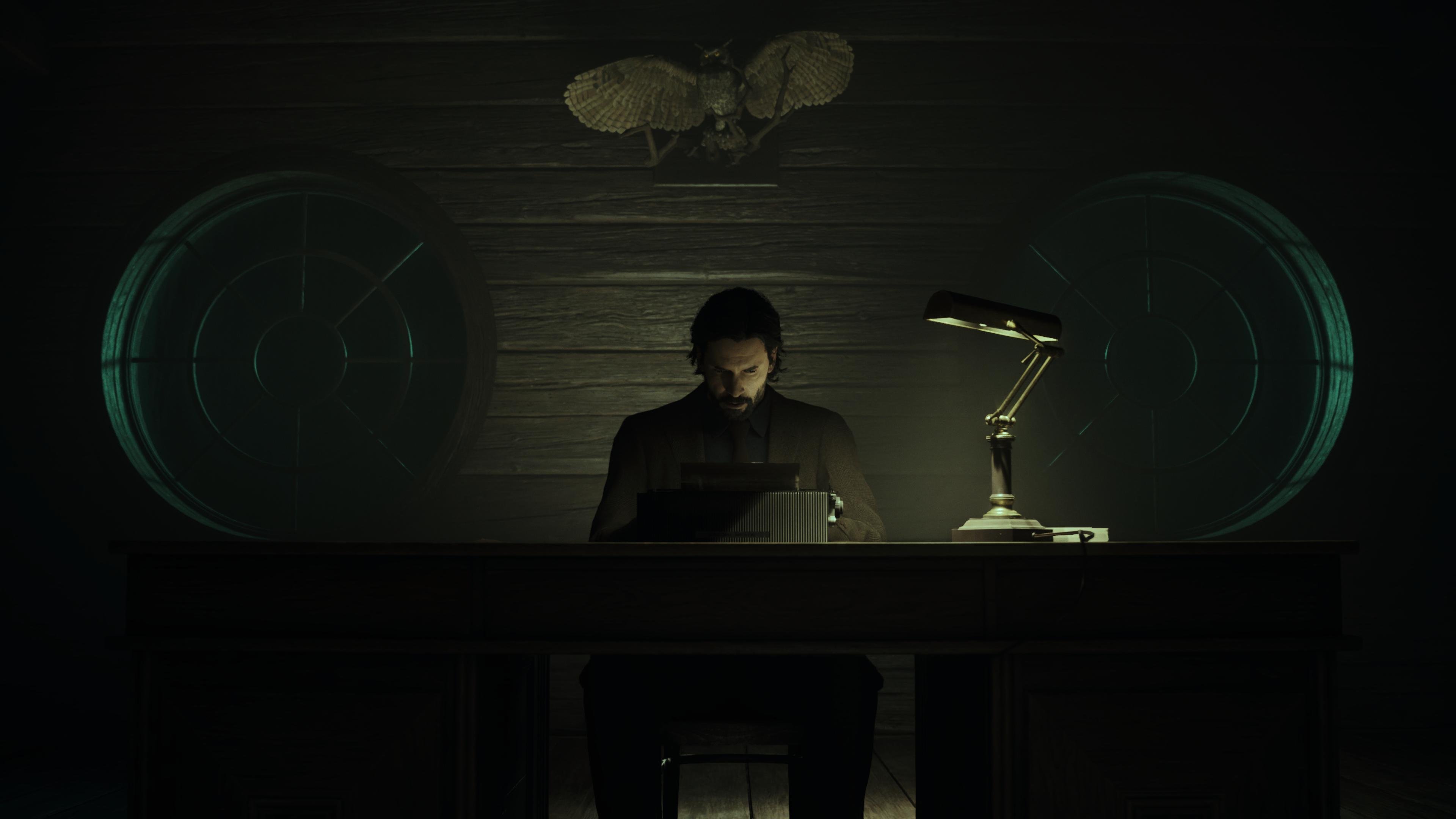
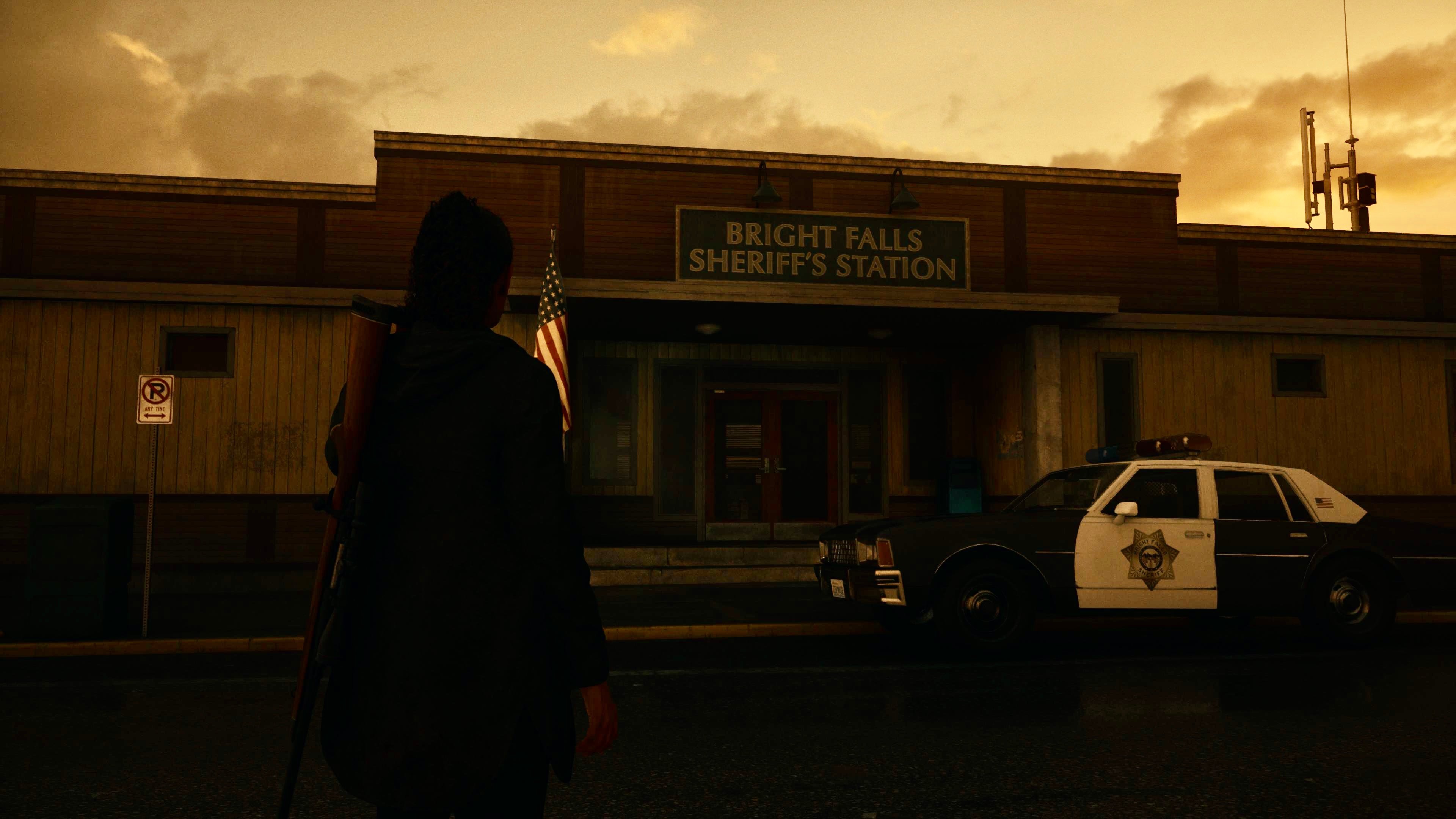

Published: Oct 27, 2023 11:32 am